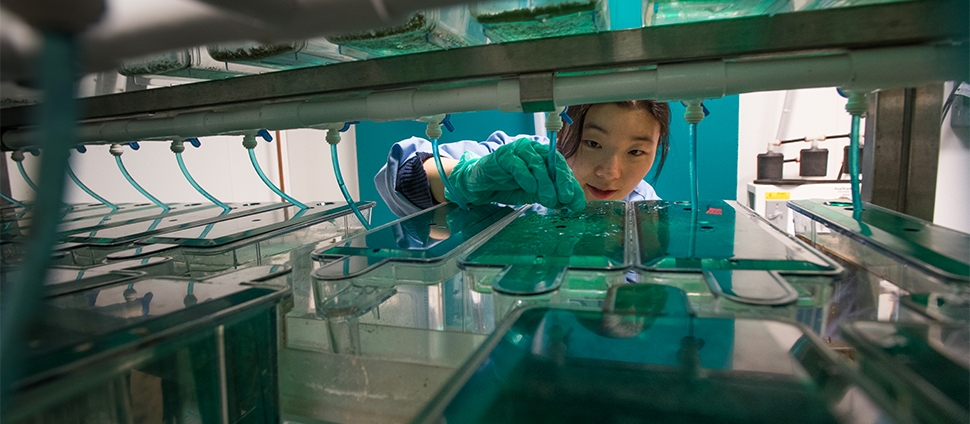Distinct Assemblage of Planktonic Ciliates Dominates Both Photic and Deep Waters on the New England Shelf
Document Type
Article
Publication Date
1-1-2015
Publication Title
Marine Ecology Progress Series
Abstract
Microbes are critical members of marine ecosystems, given their roles as both primary producers and consumers in food webs. Despite their importance, data on biogeographical patterns of microbial eukaryotes are limited. Past studies have generally targeted either all eukaryotes or broad clades like Rhizaria and Alveolata. For this study, we focus more narrowly on oligotrich and choreotrich ciliates (both members of the class Spirotrichea) as these lineages play major roles in marine food webs. We assess distribution patterns of abundant ciliate community members along a 163 km transect off the coast of New England, USA. Over 3 d, we sampled ciliates at 23 stations from shallow waters (depth) to beyond the continental shelf (>800 m). We used a community DNA finger-printing technique, denaturing gradient gel electrophoresis (DGGE), to assess patterns for abundant community members and found 2 overlapping assemblages of ciliates: one common in samples from inshore to offshore (up to 180 km from the coast) and from the surface to 850 m deep; and a second that is generally restricted to offshore waters. The distributions of these 2 assemblages correspond with distance from the coast but not with the environmental factors that we measured, including depth, temperature, degree of stratification, phytoplankton fluorescence and accessory pigment composition (a proxy for phytoplankton composition). The presence of these ciliate assemblages as deep as 850 m suggests they may have a broader impact on marine food webs than just photic zone herbivory.
Keywords
Choreotrich, Ciliate diversity, DGGE, Inshore-offshore, Oligotrich, Surface-deep waters
Volume
526
First Page
1
Last Page
9
DOI
10.3354/meps11256
ISSN
01718630
Recommended Citation
Grattepanche, Jean David; Santoferrara, Luciana F.; McManus, George B.; and Katz, Laura A., "Distinct Assemblage of Planktonic Ciliates Dominates Both Photic and Deep Waters on the New England Shelf" (2015). Biological Sciences: Faculty Publications, Smith College, Northampton, MA.
https://scholarworks.smith.edu/bio_facpubs/100


